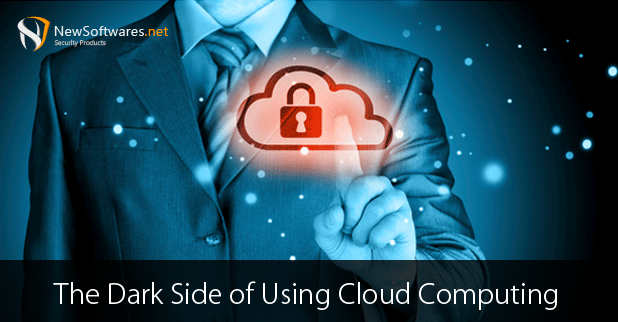The cloud computing industry is expected to expand at an exponential rate. The reason for that is, whether you are using a desktop computer, laptop or a smart device such as a smartphone or a tablet, you can access your data at any time and from anywhere. Cloud computing is extremely beneficial for individual users as well as for businesses. Cloud computing saves time, energy and space for users, especially the corporate ones. But, the technology is nowhere near perfect yet, it imposes a variety of risks to your data and can lead you towards some hazardous outcomes. As a result, using Folder Lock that can upload encrypted lockers on the cloud can actually help your cause. However, here are some of the common threats that can haunt you on the cloud backup.

Your data is in someone’s hand
If you are yourself storing your data on a portable or hard drive, then you are yourself looking after it. But, when you upload your information on a cloud server, it means you are handing over your data to a third party. Although, you have a confidential password and a unique username, but, what is the assurity that the third party will not poke their nose in your data. In today’s age, there is hardly anyone whom you can trust. In fact, it is hard to trust your friends and family in the modern world, so, trusting a third person for taking care of your most precious asset, sounds quite foolish.
The threat of cyber criminals

You can expect a cyber attack from hackers whenever you get connected to the internet. There is always an essence insecurity while storing data on the cloud. Hackers love attacking cloud servers, they know they can get some really valuable information from there and that too without much of a hassle. The fact is that people tend to hand over their information to the third party and think that they have done their job and now everything is upon the cloud service provider. However, you are liable to protect your precious information with password, encryption or by some other means. But, you have to fulfil your duty diligently.
Threats from your own people
Who does not know about the Edwards Snowden incident? He shook the whole world when he stole some NSA secrets and publicized it. It highlighted the issue of the insider threat in the best and in the most horrific manner. Similarly, your own people can be your enemy and can steal your information if they come to know about your password. You need to extremely careful against the insider threat as well. You cannot trust anyone enough to reveal your passwords. Moreover, avoid staying logged in in your accounts. There are some threats and you need to take precautions against them.
Negative Aspects Of Cloud Computing
1. Security Risks: Cloud computing involves storing data on remote servers, which increases the risk of data breaches and cyber-attacks.
2. Cost: Cloud computing services can be expensive, especially for businesses that require large amounts of storage.
3. Dependency: Companies that rely heavily on cloud computing may be at risk of disruption if the service provider experiences outages or other issues.
4. Privacy: Cloud computing can also be a risk to user privacy,
5. Data Breaches: Cloud computing can also leave users vulnerable to data breaches, as the data is accessible by multiple users and can be accessed by anyone with the right credentials.
6. Reliability Issues: Cloud computing can also be unreliable due to factors such as network outages, slow response times, and limited storage capacity
Dark Side Of Cloud Computing With Big Data Analytics
The dark side of cloud computing big data analytics is the potential for misuse of data. Companies can use analytics to identify patterns in user behavior and target users with tailored ads or content. This can lead to data being used for unethical or manipulative purposes, such as manipulating user behavior or targeting vulnerable populations.
Biggest Risk With Cloud Computing

The biggest risk with cloud computing is a lack of security. Cloud computing involves storing data and applications in a remote server, which can be vulnerable to cyberattacks if it is not properly secured. Additionally, cloud computing can also leave users vulnerable to data breaches, as the data is accessible by multiple users and can be accessed by anyone with the right credentials.
